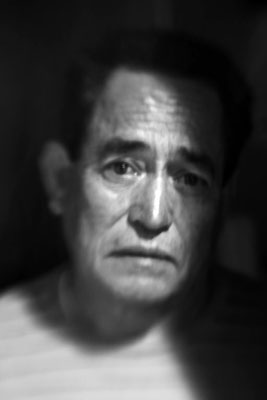All Nonfiction
- Bullying
- Books
- Academic
- Author Interviews
- Celebrity interviews
- College Articles
- College Essays
- Educator of the Year
- Heroes
- Interviews
- Memoir
- Personal Experience
- Sports
- Travel & Culture
All Opinions
- Bullying
- Current Events / Politics
- Discrimination
- Drugs / Alcohol / Smoking
- Entertainment / Celebrities
- Environment
- Love / Relationships
- Movies / Music / TV
- Pop Culture / Trends
- School / College
- Social Issues / Civics
- Spirituality / Religion
- Sports / Hobbies
All Hot Topics
- Bullying
- Community Service
- Environment
- Health
- Letters to the Editor
- Pride & Prejudice
- What Matters
- Back
Summer Guide
- Program Links
- Program Reviews
- Back
College Guide
- College Links
- College Reviews
- College Essays
- College Articles
- Back
What in a Name?
In Victor Hugo’s novel, Les Miserables, Jean ValJean spends his whole time in prison trying to get Javert to call him by his real name, not his prisoner number (24601). Yet in Charles Dickens’ novel, A Tale of Two Cities, Doctor Manette, when asked his name responds with his prisoner number (105, North Tower), for he cannot recall his real name.
I was a Les Mis enthusiast before I read A tale of two cities, and this struck me as odd. Here we have two men, both living in the same time period, subjected to lengthy periods of time in prison, in the same country, and this whole dynamic of who they are is different. Why is this so?
Well, we know that ValJean tried to escape from prison. I think this all boils down to determination. ValJean didn’t want to be there, and went as far as to try to break out. He desperately tried to grasp onto who he was, longing for the day that he would get out. Dr. Manette had given it as a lost cause, and basicallys gave up from seeing the light of day.
Another explanation for this was the conditions that they lived in. Manette lived in rather solitary conditions. It is likely that all he was called was by his prisoner number, while ValJean managed to get other prisoners to call him by his real name. Contact with other people, other prisoners, could also help ValJean’s ambitions to hold onto who he was and what he had going for him outside the prison walls.
Another attribute to this is the physical exercise. There is a proven connection with physical activity and mental stability. Lack of excirsize, as in Manette’s case, could also support the cause. ValJean, though, was outside, doing heavy work. He was praised for his unusual strength that he had build up working as years as a prisoner.
Any combination of these attributes could be credited with the cause for why ValJean was so adamant to be called by his true name, and why Manette could not remember his own.

Similar Articles
JOIN THE DISCUSSION
This article has 0 comments.

As an avid reader and musical enthusiest, I have been in love with Les Mis for a couple of years, and just picked up A Tale of Two Cities. The scene with Manette forgetting his name struck me as odd, because it did not agree with ValJean.